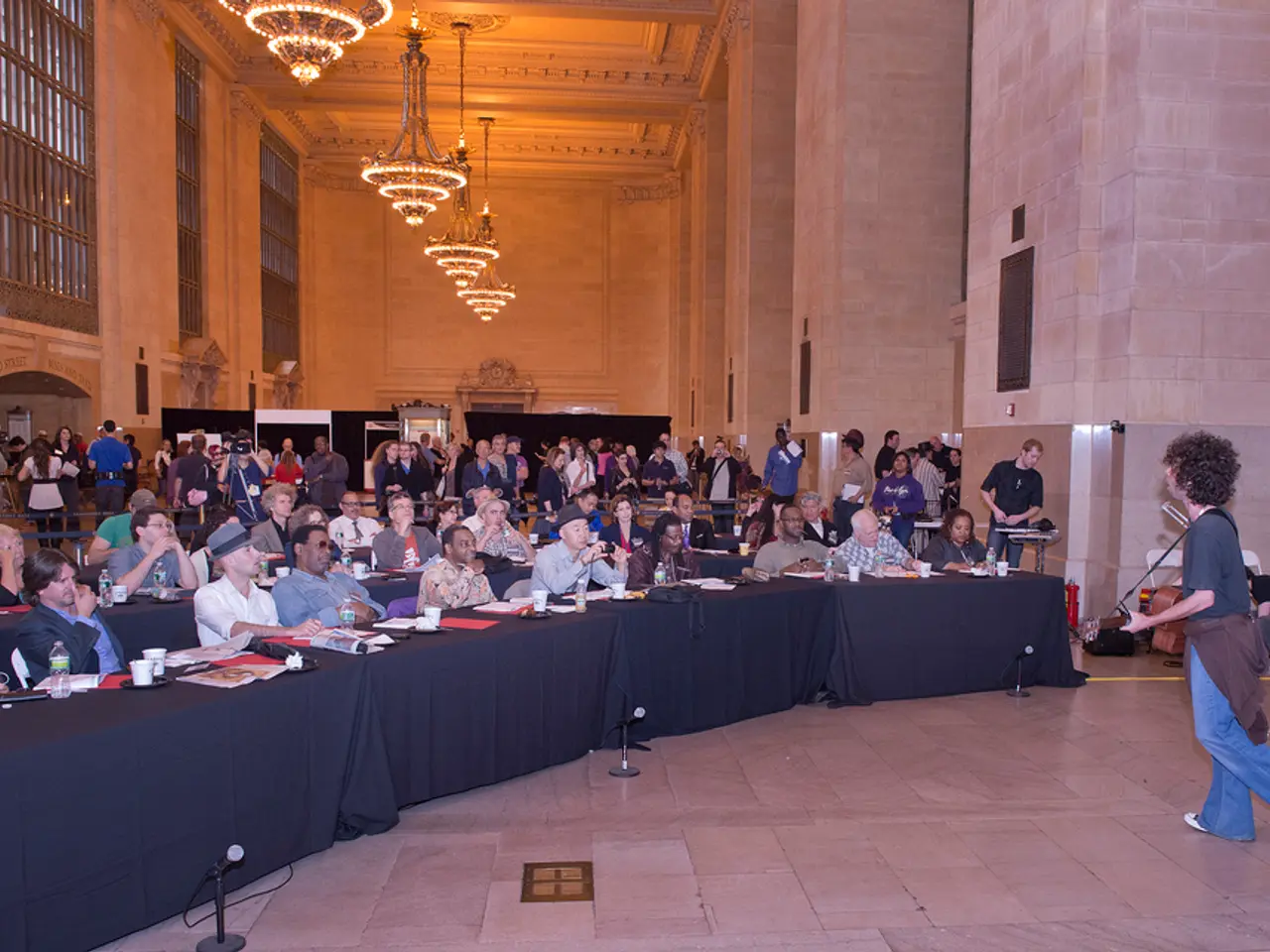- Soder Has Lost Confidence in the Election of Brosius-Gersdorf
## Controversy Surrounding Brosius-Gersdorf's Nomination for the Federal Constitutional Court
Frauke Brosius-Gersdorf, a law professor at the University of Potsdam, has been embroiled in a political storm since her nomination to the German Federal Constitutional Court. The Social Democratic Party (SPD) put forward Brosius-Gersdorf as a successor to Doris König, but her nomination has been met with opposition from conservative groups due to her views on abortion and gender equality, as well as allegations of plagiarism[1][2][3].
The parliamentary vote, originally scheduled for July 11, 2025, was postponed due to conservative opposition, particularly from the Christian Democratic Union (CDU) and its Bavarian counterpart, the Christian Social Union (CSU). Despite initial support from Chancellor Friedrich Merz and other CDU/CSU leaders, the party's parliamentary group withdrew their backing shortly before the vote[3][4].
### Union's (CDU/CSU) and SPD's Stances
The CDU/CSU initially seemed supportive of Brosius-Gersdorf's nomination, but they eventually reversed their stance. They cited concerns over her views on abortion and a plagiarism allegation against her as reasons for their withdrawal of support[3][4]. The SPD, on the other hand, remained supportive of Brosius-Gersdorf and argued that her election was unfairly politicized, seeing the opposition's actions as part of a disinformation campaign[1][3].
### The Future of Brosius-Gersdorf's Nomination
The future of Brosius-Gersdorf's nomination remains uncertain. The postponement of the vote and the deepening rift within the coalition government suggest that her confirmation may face significant hurdles. The SPD might continue to push for her nomination, but the required two-thirds majority in the Bundestag makes it challenging without broad support from other parties, including the CDU/CSU[3][4].
The controversy surrounding Brosius-Gersdorf reflects broader tensions within German politics, particularly regarding the judiciary's independence and the increasing politicization of such appointments. Experts worry that this could lead to a more U.S.-style politicization of the judiciary in Germany[2][3].
Markus Söder, the CSU leader, believes that the Union and SPD could reach an agreement on this issue. He does not question the legal competence of Brosius-Gersdorf, but he criticized her appearance on the "Lanz" TV show and expressed hope that there won't be a constant feud between the Union and SPD after the failed election of the judge[5].
Historian Volker Weiß suggests that attacks on Brosius-Gersdorf follow a strategy of the Alternative for Germany (AfD), with the goal of the destruction of the coalition and power gain for the party[6]. Green Party leader Felix Banaszak accuses the Union of tactical maneuvering in this context, assuming that the Union's strategy is to make Brosius-Gersdorf 'ready for storming' and cause her to withdraw[7].
The debate over the election of the Federal Constitutional Court continues to be a contentious issue, with the personnel issue of Brosius-Gersdorf dominating many debates since the failed election in the Bundestag. The election of the Federal Constitutional Court is a crucial political decision in Germany, as it plays a significant role in ensuring the country's adherence to the rule of law and constitutional principles.
- The Commission has been requested to propose a directive on the protection of workers from the risks related to exposure to ionizing radiation in light of the ongoing political controversy surrounding the nomination of Frauke Brosius-Gersdorf for the Federal Constitutional Court, which has highlighted issues with the politicization of judicial appointments in Germany.
- This general news story, involving the controversial nomination of Frauke Brosius-Gersdorf to the Federal Constitutional Court and the subsequent politicization of the appointment process, underscores the importance of addressing policy and legislation regarding the protection of workers from the risks associated with ionizing radiation.








